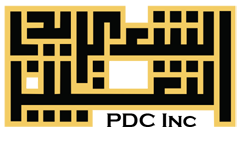
Pakistan Muslim League (Nawaz) Election Update
In July of 2017, Pakistani Prime Minister Nawaz Sharif of the Pakistan Muslim League-Nawaz (PML-N) was removed from office by Pakistan’s Supreme Court on corruption charges. These charges were brought up in the wake of the Panama Papers leak in 2016, which accused Nawaz Sharif and his family of possessing large offshore holdings. The Panama Papers were a collective effort put together by investigative journalists across the world that shed light on the corruption of many of the world’s politicians.
With the upcoming Pakistani general election coming up on July 25th, tensions are high in the country between the two leading parties: PML-N and the Pakistan Tehreek-e-Insaf (PTI), lead by former Pakistani national cricket team captain, Imran Khan. Both parties are campaigning hard across the nation, however the partitioned province of Punjab seems to be the most contested battleground. With the Sharif family hailing from Punjab, it has generally remained PLM-N’s main stronghold and center of power. Following the dismissal of Nawaz Sharif last summer, PTI has been able to capitalize on that and convince voters that they are the more transparent party in Pakistan, something that the country seems to struggle with across the board. If PTI can win more votes in the province of Punjab, PML-N will suffer badly and have a grim future ahead of them for their party.
Nawaz Sharif landed in Pakistan on Friday July 13th with his daughter Maryam, where they were both arrested on corruption charges. The arrests prompted huge coming-home parties organized by the former leader’s loyal supporters. Numerous arrests have been made as the supporters blocked the streets of Lahore in an effort to give their corrupt leader a proper welcome home.
With Nawaz Sharif behind bars, his younger brother, Shahbaz Sharif, will be taking over the party for the July 25th elections. If the younger Sharif is elected, Pakistan will most likely continue in its current state of affairs. If however, moderate parties like PTI and the Pakistan People’s Party (PPP) can win more seats in the parliament, change may be possible. Unfortunately, though, many Pakistanis feel as if there is no good party, and although there is a lot of energy around the election, there is not much optimism. Some citizens have complained that all the candidates are corrupt, which is one of the main problems plaguing Pakistani politics.
One of the biggest issues in Pakistan is the underlying fact that the military has consistently exerted its power over the political system throughout the nation’s short existence. Numerous governments have been overthrown by the military. In fact, the Supreme Court’s decision to remove Nawaz Sharif from office was viewed as a huge stepping stone in democracy for the country. It was a sight of triumph in the eyes of many that their government had successfully implemented a set of checks and balances.
Come July 25th, it will be interesting to see what kind of destiny the people of Pakistan will choose and what their future will hold. The country could choose a path towards emboldened political Islamism, one with a more Western focus, or even one that attempts to strengthen the already firm bonds between Pakistan and their most powerful neighbor, China. Whatever the results of the election, it is in the interest of the United States to attempt to repair some of the damage to their relationship, rather than further isolating the country to pursue closer ties to the Chinese.
Ethan Concannon is a Summer Associate at PDC.
Photo:
